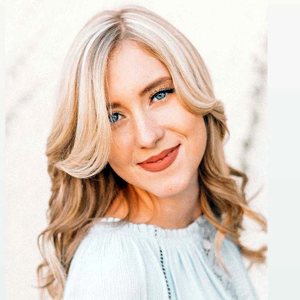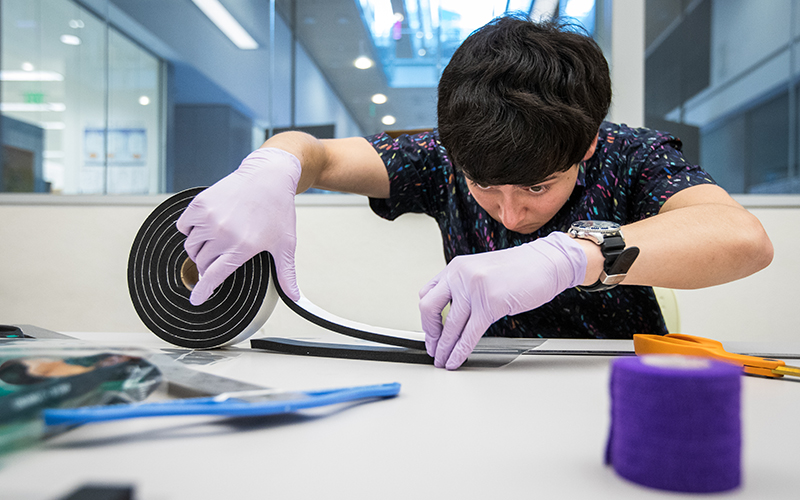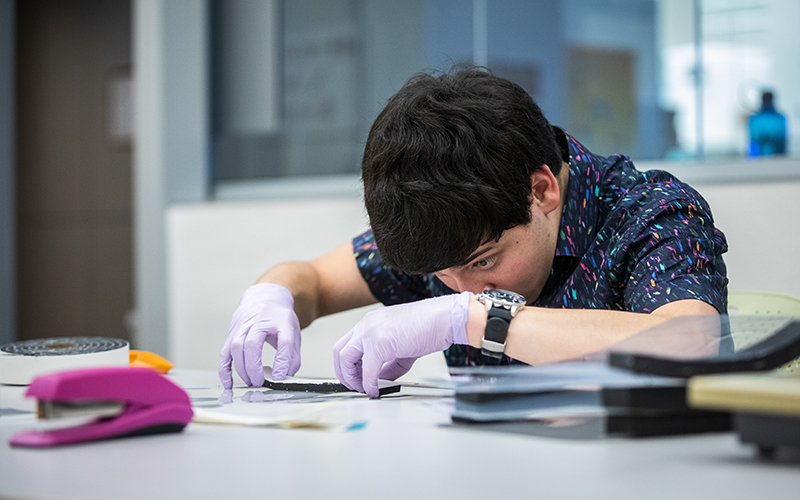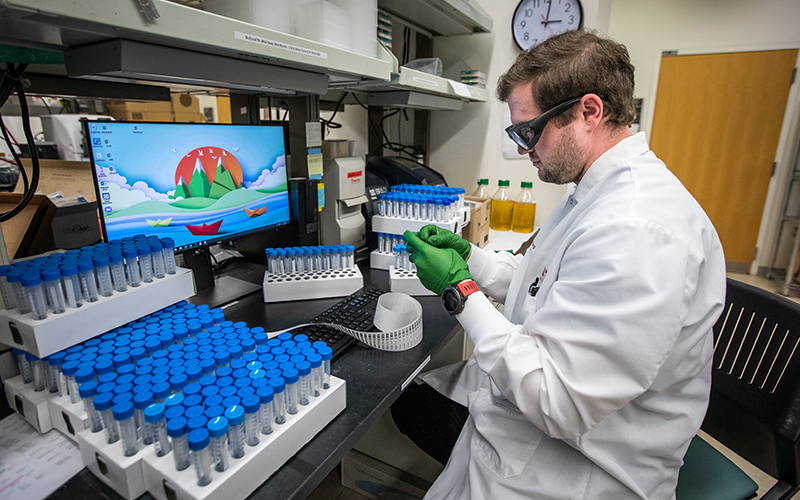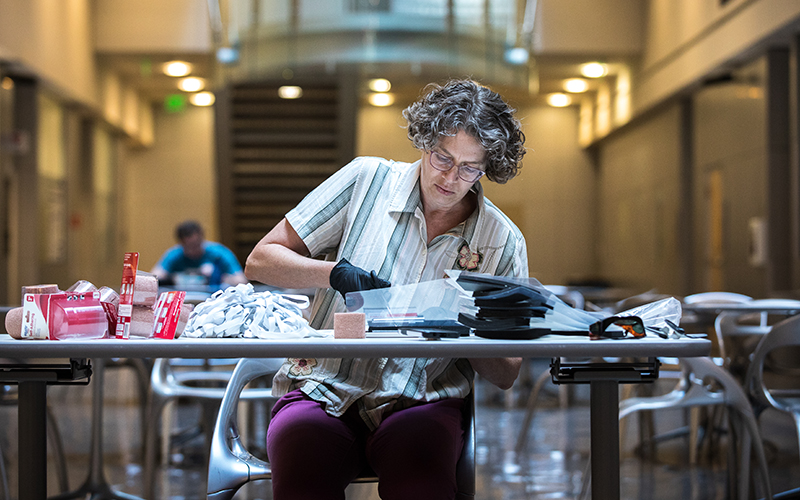PHOENIX – After more than a week of delays, the Arizona State University Biodesign Institute began its drive-thru testing for COVID-19 on Thursday, and it will not be open to the general public.
Testing is reserved for selected essential workers, including first responders and hospital workers who face exposure more frequently, according to Joshua LaBaer, the ASU Biodesign Institute executive director.
“If we were to lose them it would threaten routine operations so we’re getting involved with them,” he said. “A lot of these folks have to work either in tight spaces or work in groups, so if one of them were to get sick they could infect others and that would be a problem for everybody.”
The limited testing marks a shift from LaBaer’s March 19 statements to the Arizona Republic, but he said Thursday “we never meant to represent that.”
“Public drive-thru would be chaotic,” LaBaer said. “Testing right now is a limited tool and is not available for everybody, so we have to use it in the way that is most effective at limiting the spread of the virus.”
Video by Madison Atkinson/Cronkite News
Now, testing has begun, safety systems and certifications are in place, LaBaer said. Part of the challenge of launching testing was access to supplies for the kit: a swab, a sterilized tube and a liquid medium.
“The kits are actually pretty simple,” LaBaer said. “They turn out to be in very short supply both in Arizona and generally in the United States, and the absence of these kits is what’s slowing down testing in our country.”
The Biodesign Institute has made 4,000 testing kits so far and plan to make an additional 10,000 in the next week. The expectation is to make 2,000 tests per day in the hopes of getting up to 50,000 kits, LaBaer said.
The institute received a $2 million donation from the Virginia G. Piper Charitable Trust along with university funding and money from other donors.
“The university initially provided us with some money to get started, and this is important because we began working towards this goal a couple weeks ago,” LaBaer said. “We couldn’t wait for donors to get involved, and so the university jump started us and now we’ve had some generous donations from organizations and philanthropists.”
ASU’s objective with the testing is to identify asymptomatic carriers of COVID-19, LaBaer said.
“One of the reasons this virus is so challenging for all of us is that one can be entirely asymptomatic and nevertheless be transmitting the virus to individuals,” he said. “And by identifying those individuals we can make sure they get under isolation until the virus clears.”
